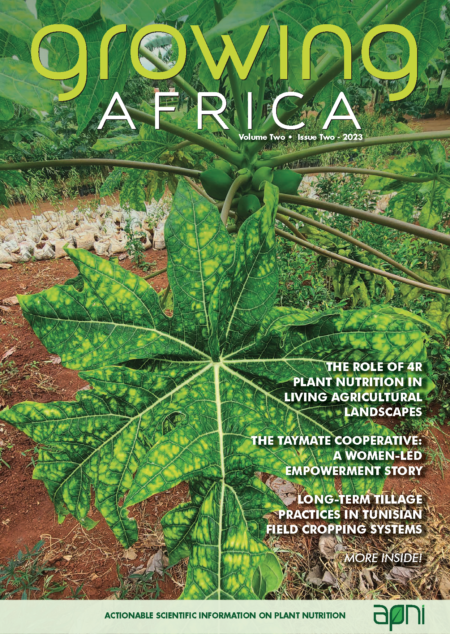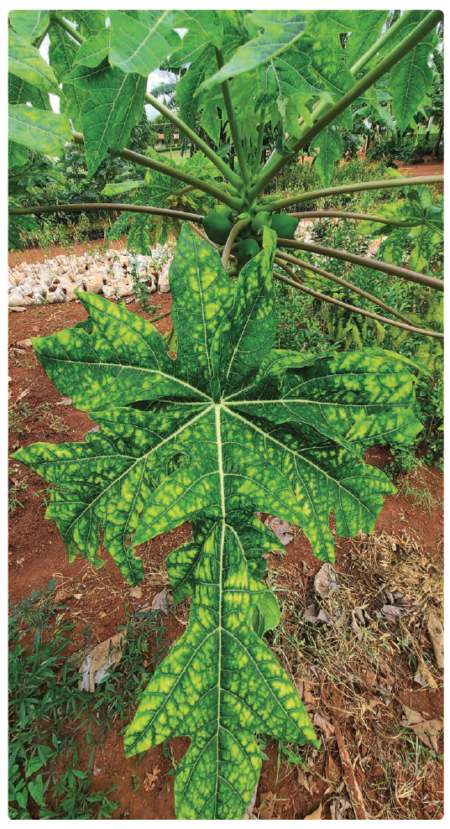
African Plant Nutrition Scholarships
Recipients of the 2022 African Plant Nutrition Scholar Award included ten students selected from advanced science programs focused on plant nutrition and the management of nutrients applied to crops in Africa. Each student received $2,000 (U.S. Dollars).
This initiative strives to encourage the brightest minds to focus on the critical target of continued advancement of the science of crop nutrition in Africa.
CAMEROON

Area of Study: Effect of different levels of fertigation on yield and quality of vegetables in protected copping in the drylands of Cameroon.
Ms. Ngiah-Sah’s work is focused on developing strategies to better manage the production of high yield and superior quality vegetable crops with improved water and nutrient use efficiency through micro and macronutrient application regimes. She is studying irrigation and drainage engineering at one of the African Centers for Excellence, the West African Center for Water, Irrigation and Sustainable Agriculture (WACWISA), established by the University for Development Studies. Her research will be conducted in gutter-connected greenhouses located in three different agro-ecological zones of Cameroon.

Area of Study: Effect of soil moisture and potassium inputs on yam planting material for seed yam production in Tolon district of Ghana.
Ms. Tiku’s study seeks to address the nutrition-related problems in high quality seed yam production by assessing the efficiency of nutrient acquisition from organic and inorganic nutrient sources at different levels of potassium (K) content, and the effect on seed yam tuber yield, seed quality, and soil. Results will identify the yam variety most suitable for the uptake and efficient usage of K and the fertilizer recommendation that both maximizes yields and restores soil nutrients. The findings of this research will enhance the production of quality seed yam in their required quantities throughout the yam belt of west Africa and beyond.
ETHIOPIA
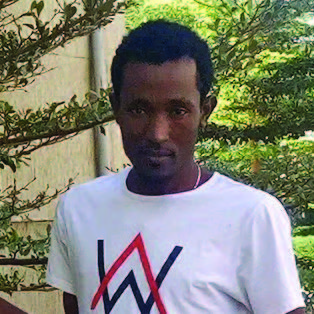
Area of Study: Effect of Parkland Ziziphus spina-christi L. and Mangifera indica L. on selected physicochemical properties of soil and sorghum yield in Sofi District, Harari Region, Ethiopia.
Mr. Feyissa’s research is intended to investigate the effects of parkland M. indica and Z. spina-christi trees on the selected physicochemical properties of soil and yield of sorghum within and outside the canopy of the tree and at varying soil depths in the region. The results will be useful to farmers and other stakeholders to give insight into the effects of parkland trees on soil fertility and sorghum yield in their farmlands. The information can also help in designing sustainable land use that could enhance the productivity of crops while maintaining and improving the resource base.
GHANA

Area of Study: Yield, nutritional quality of pineapple and soil ecosystems delivery in low nutrient soil amended with inorganic and organic fertilizers.
The objective of Emmanuel’s research is to use innovative precision agriculture tools to determine the effect of tailored or site-specific fertilizer applications, especially phosphorus (P), to improve pineapple yield and nutritional quality. This project will help predict variable inorganic NPK fertilizer application rates for profitable and ecologically sensible pineapple production. It is expected that the implementation of site-specific fertilizer application will increase pineapple yield, nutritional quality, and farmers’ incomes.
KENYA
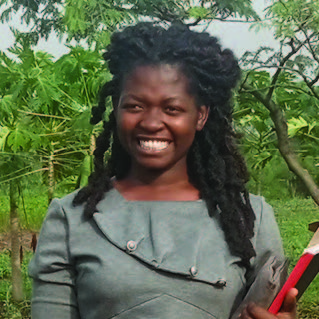
Area of Study: Sustainable intensification of smallholder farming systems using push-pull as a template.
Ms. Buleti’s study aims to identify opportunities for further intensification of push-pull technology in western Kenya, and to determine the effectiveness of select sustainable intensification practice on soil fertility, pest and weed management and crop productivity. Further intensification targets to diversify income and diets to enhance food security and improve farmers’ livelihoods. Additionally, it will contribute to smallholder policy development for the achievement of sustainable development goals such as zero hunger.
MOROCCO
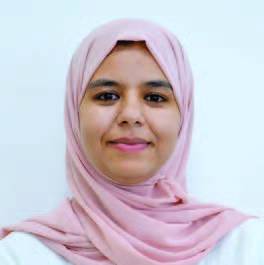
Area of Study: Valorization of phosphogypsum in agriculture as an amendment and a fertilizer.
Ms. Outbakat’s research has installed pot trials at the UM6P experimental farm in Benguérir to evaluate the effect of Phosphogypsum (PG) on crops and soils affected by salinity and to investigate the safety of its application based on heavy metals and radioactive elements contents in the water-soil-plant system.
A field trial has also been installed at the UM6P experimental farm to evaluate the effect of PG as a low-cost fertilizer source.
NIGERIA

Area of Study: A comparison of soil phosphorus extraction methods for soil test-based P fertilizer recommendation for tomato production in Kano State, Nigeria.
Yahaya’s objective is to evaluate different phosphorus (P) extraction methods for sustainable and economic use of P fertilizers and to develop a critical P concentration for fertilizer recommendation models for tomato production. His study will present the most effective method of estimating soil available P from which a mathematical model for integrating soil test P, P critical level, and P requirement factor for P fertilizer recommendation will be developed for increasing tomato production in Nigeria.
TANZANIA

Area of Study: Influence of organic carbon and nitrogen sources on bacterial ability to solubilize rock phosphate and enhance plant growth in acidic and calcareous soils.
Damiano is working to isolate and characterize phosphorus (P)-solubilizing microorganisms (PSMs) from acidic and calcareous soils of Tanzania, examine the influence of the local organic carbon sources and fertilizer-grade nitrogen sources for enhancing Minjingu Rock Phosphate solubilization by PSMs, and evaluate the ability of PSM-Rock phosphate formulation to enhance P availability and maize yields on these acidic and calcareous soils. This study addresses the current knowledge gap for the potential of PSMs and phosphatic biofertilizers sourced from local P reserves and organic wastes.
TANZANIA
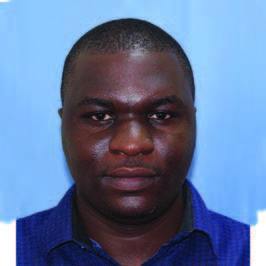
Area of Study: Assessment of the effects of soil physicochemical characteristics on fruit nutritional quality of local avocado germplasm grown in the Mbozi district.
Mr. Mwaikambo’s study covers two objectives. First, to profile the nutritional quality of the local avocado fruits grown in the Mbozi district; the second is to assess the influence of soil physicochemical properties [soil texture, pH, CEC, EC, organic carbon, total nitrogen, available phosphorus, calcium, magnesium, and potassium] on the nutritional quality of local avocado fruits.
ZIMBABWE
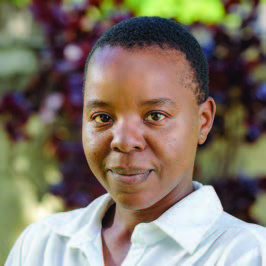
Area of Study: Soil organic carbon sequestration across scales in a subhumid region of Zimbabwe.
Ms. Nyawasha’s main objective is to understand the biophysical and socio-economic drivers of soil organic carbon (SOC) sequestration at three smallholder farming scales (plot, farm, and village) in Murewa district, Zimbabwe. Building on previous research that has shown the important role resource endowment plays in influencing decision making on resource use and nutrient dynamics at plot and farm level; this study will use land use and land management information from local farmers to understand how long-term changes in land use patterns and management affect SOC content in the area.
Young African Phosphorus Fellowships
The Young African Phosphorus Fellowship supports early career researchers working within scientific programs contributing to our understanding and improved phosphorus management in African agro ecosystems. Each recipient receives $5,000 (U.S. dollars).
NIGERIA
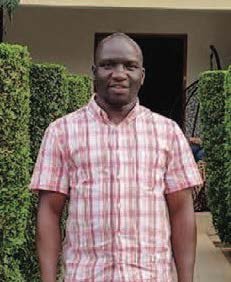
Area of Study: Judicious Phosphorus Management: Assessment of rice farmers’ knowledge and best practices.
Closing the P and other nutrient cycles is a critical issue that must be addressed both locally and worldwide in order to improve P usage efficiency, fulfill stricter water quality and nutrient criteria, and produce affordable food in sustainable agricultural systems. As studies point to the need for increased fertilizer use in Nigeria for bumper yield, there is a need to raise awareness among Nigeria’s smallholder rice farmers, who account for 80% of the country’s rice production, about the benefits of using P fertilizer judiciously to produce a high yield without endangering the environment. The broad objective of this study is to assess rice farmers’ knowledge, perception, and use of phosphorus (P) fertilization in the derived Guinea Savannah agro-ecological zone of Nigeria.
ZIMBABWE

Area of Study: Rethinking P fertilizer recommendations for crop intensification in Zimbabwe: Mechanisms of unlocking microbial P immobilization.
The study will focus on ways to unlock immobilized P in microbial biomass which is competing with crop. Increasing the application of inorganic P fertilizer is likely to offset microbial immobilization when other nutrients, particularly nitrogen (N), are adequately supplied. The synergic relationship between P and N indicates that an offsetting response is likely when N, potassium, sulphur, and carbon are non-limiting. Microbial immobilization and release will proceed while the highly reactive phosphate anions react with aluminum, iron, and clay materials. As such there is need to understand the actual pathway ultimately making P more available. The main objective of the study is to assess the impact of increasing P rates on soil available P, soil microbial dynamics, cereal yields and use efficiencies.
African Plant Nutrition Outreach Fellowships
The Outreach Fellowship support education, training, and communication programs relevant to improving the use and efficiency of plant nutrients in African agro ecosystems. Each year, awards of USD $5,000 each are available to innovative scientists, extension specialists, or educators working in Africa. The announcement of the 2022 African Plant Nutrition Outreach Fellowship is not yet available for publication.
Tanzania

Area of Study: Establishing and Scaling-Up Site-Specific Nutrient Management Recommendations Using the Nutrient Expert Tool on Maize Smallholder Farming Systems in the Northern Zone of Tanzania.
The ability of extension programs to sustainably intensify smallholder maize production at larger spatial scales is limited by lack of appropriate decision support tools. A dynamic and robust site-specific nutrient management (SSNM) approach can help extension service providers and development agencies to provide farmers with reliable and accurate site-specific fertilizer recommendations that can increase yield and profit for these farmers. This study plans to establish and upscale SSNM recommendations for maize smallholder farming systems as a suitable technological package for the Northern Zone of Tanzania. Demonstration trials will be established to verify the performance of SSNM recommendations derived from the Nutrient Expert(NE) tool. Further outreach will familiarize NE recommendations amongst smallholder maize farmers and extension officers as an alternative to blanket fertilizer recommendations. The study’s participatory approach for the farmer managed trials, will involve farmers throughout the planning and implementation process, which will help to ensure high adoption of the technology within the targeted districts.
Kenya

Area of Study: Experiential Learning on Climate Smart Nutrient Management (ECLINUM) in Uasin Gishu County, Kenya
The Outreach Centre at the University of Eldoret (UoE) offers farmer trainings based on expert opinion; however, improved nutrient management adoption in smallholder systems requires more holistic, practical, and innovative approaches. Farmers need a better understanding of the consequences of improper soil management; soil health concepts focused on physical, chemical, and biological properties; soil testing and fertilizer use; climate change and climate-smart nutrient management; and integrated soil fertility management that embeds agro-ecological principles. This participatory project will implement on-farm trainings via a “Living Labs” approach involving farmer managed field plots demonstrating crop responses to appropriate fertilizer application and other integrated agronomic practices geared towards nutrient use efficiency. A qualitative soil fertility testing tool (QSFTT) is envisioned through transdisciplinary integration of science and indigenous knowledge. The simple decision support tool would provide farmers with a stepwise system of guidance to increase awareness on on-farm soil fertility status, provoke him/her to make the right decision regarding soil fertility maintenance, and increase motivation to seek expert guidance when needed.
African Plant Nutrition Research Fund
Tanzania
The aim of the African Plant Nutrition Research Fund (APNRF) is to enable scaling of improved nutrient and soil fertility management by synergistically extending research conducted in strategic priority areas of the African 4Plant Nutrition Institute. Each recipient has been granted up to US$20,000 per year for up to two years for relevant plant nutrition research work performed in Africa for the benefit of Africans.
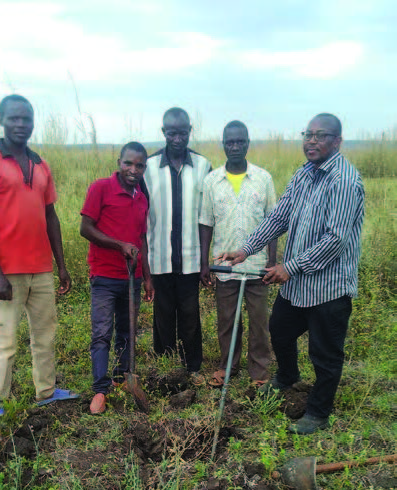
Project: Guiding soil organic carbon sequestration potential under selected crop production systems in Tanzania
Organic carbon improves soil fertility, soil structure, soil moisture retention, soil pH, reduces soil acidity and soil health in general. Healthy soils are fundamental for sustainable and improved crop production and livelihood of farming communities. This project will study the contribution of various crop production systems to sequestered soil organic carbon for appropriate land resources management and minimized emission of greenhouse gases.
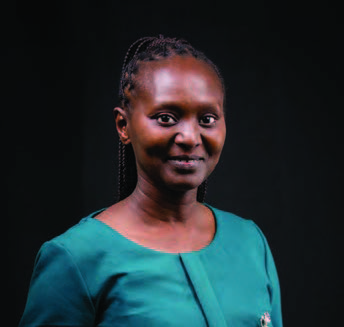
Project: Fighting hidden hunger through micronutrient fertilization in maize and rice in Tanzania.
Previous research showed the potential of supplementation of zinc and iron in increasing rice yields and quality. This project seeks to streamline micronutrient fertilization to guide micronutrient fertilizer formulations, increase agricultural productivity, and alleviate hidden hunger in line with APNRF theme of enhancing soil health for improved livelihoods.
Morocco

Project: In-season nitrogen management for wheat in Tunisia using proximal and remote sensing.
The project’s goal is to develop satellite image-based models for nitrogen (N) uptake in wheat in Tunisia, which shall be used as the basis for a decision support system for optimizing N recommendations to wheat farmers. This development will be possible through upscaling of calibration models developed from data collected by proximal sensing of wheat field trial plots. The project will encompass both relatively low-cost proximal sensing as well as satellite remote sensing, and development of a workflow of model transfer from field measurements to satellite data. It is envisioned that the working model will be useful also for future projects and other crops.
Our Scholarships and Fellowships are made possible through APNI’s partnership with Mohammed VI Polytechnic University (UM6P) and OCP Group (OCP S.A.). Funding for the African Plant Nutrition Research Fund is also made possible through APNI’s partnership with the Mohammed VI Polytechnic University (UM6P).
Learn more about our Award and Fellowship programs at https://apni.net/awards. More information about the African Plant Nutrition Research Fund is available at https://apni.net/research-fund

